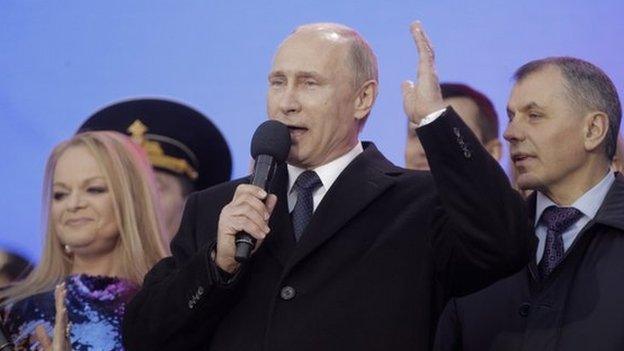Russia's WW2 parades overshadowed by Ukraine crisis
- Published
Volunteers search for remains of soldiers killed during WW2 in a forest outside St Petersburg, where one of the fiercest battles took place.
All around St Petersburg the land is filled with the shallow graves of missing soldiers.
Seventy years after the end of World War Two, volunteer diggers armed with metal detectors are still discovering the remains of troops where they fell.
"When we were children they drummed into us that no-one was forgotten, they'd all been buried," Alexander Novokshonov says, as he searches through handfuls of swamp mud.
"But as teenagers we would come to the woods and see bones lying in the bushes. I think that's wrong, especially as these people died fighting for their country."
So Alexander wants to give the forgotten soldiers a proper burial.
'For Stalin!'
In the area he's searching now, he's uncovering Soviet and German remains side-by-side.
Anatoly Muzhikov, a veteran who fought outside Leningrad during WW2
This was part of the bitterly contested front line around the city then known as Leningrad.
Under siege by Hitler's army for 900 days, it was the deadliest blockade in history, with hundreds of thousands killed by bombs or starvation.
Now 95, Anatoly Muzhikov was one of many who rushed to the city's defence.
Flicking through his photo album, his war memories are still sharp - the ferocious fight for Leningrad first, then deployment to Kursk and finally Berlin.
"We didn't question what we were fighting for, we knew our enemy," he explains, displaying a scrapbook full of letters of thanks from Josef Stalin.
"There was a slogan, 'For Stalin! For the Motherland!'" the veteran recalls. "But we were all defending our country."
Ukraine shadow
Victory cost the USSR dearly. It's estimated up to 28 million Soviet citizens died in World War Two - the greatest loss of any country by far.
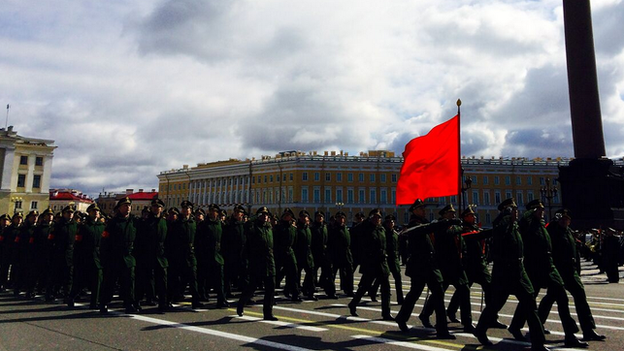
St Petersburg - like many other Russian cities - is preparing for a big Victory Day parade on Saturday
So Russia has been preparing for this 70th anniversary for months.
State television is screening back-to-back war films; city billboards sport images of war heroes in place of adverts; car stickers declare "Thank you Granddad, for Victory!"
The victory over Hitler was an allied effort.
But the conflict in Ukraine is casting a cloud over this anniversary.
Many Western leaders will shun Saturday's main military parade on Moscow's Red Square in protest.
French President Francois Hollande says he's busy, German Chancellor Angela Merkel will visit the following day, and although Britain is sending Winston Churchill's grandson, Sir Nicholas Soames, he won't attend the actual parade.
It's a far cry from 2010 when Britain's Welsh Guards joined in for the first time amid talk of a historic detente.
Today, the EU and US accuse Russian President Vladimir Putin of deploying troops in eastern Ukraine and attempting to redefine Europe's borders.
Although President Putin denies sending troops, Moscow talks of a "fascist coup" in Kiev and insists that ethnic Russians in the country's east are under threat.
'We don't need anyone'
Supporting them has become a modern-day patriotic cause.
The pro-Russian rebels sport the orange-and-black St George ribbon, long the symbol of the Soviet victory over the Nazis in World War Two.
"Of course, what the government in Kiev is doing doesn't come close to Hitler," admits Igor Pyhalov, who says he's fought in eastern Ukraine three times as Moscow turns a blind eye to Russian volunteers' recruitment.
But he does believe that ethnic Russians are being targeted.
To Western governments, though, Moscow is the belligerent one.
"It's their loss," Irina Muravyova snorts of those politicians who'll stay away from the parade, echoing official comments here.
"Clearly they don't like it when Russia rears its head," argues the curator of the main museum to the Leningrad siege. "But we don't need anyone."
Still, the Ukraine crisis has created deep divides among former allies.
That's clearer than ever on a date that should be a chance to reflect on the vast, shared cost of the fight against Hitler's fascism.
- Published8 May 2015
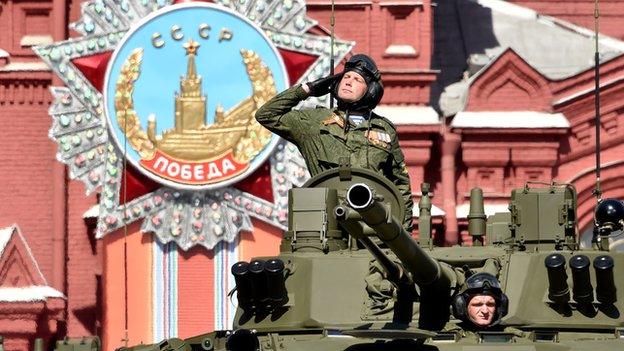
- Published8 May 2015
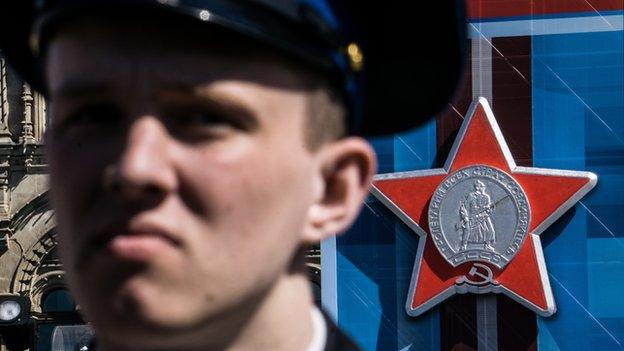
- Published6 May 2015
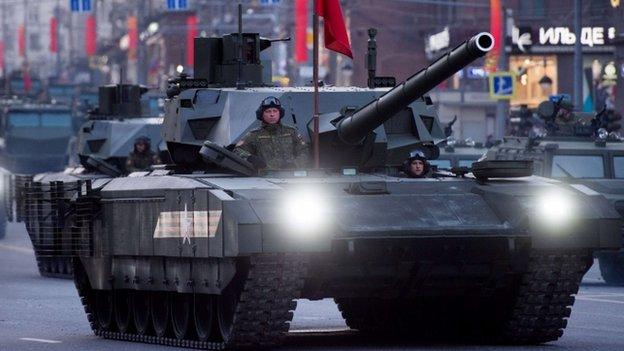
- Published5 May 2015
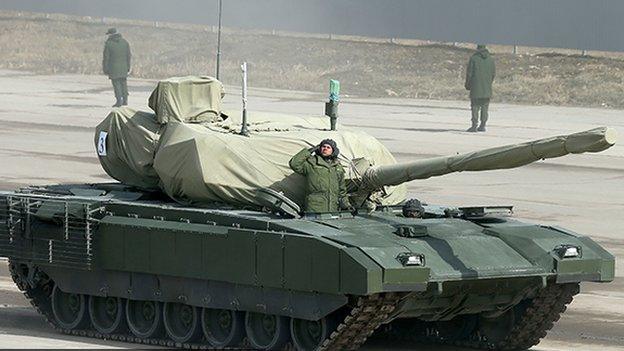
- Published2 September 2014
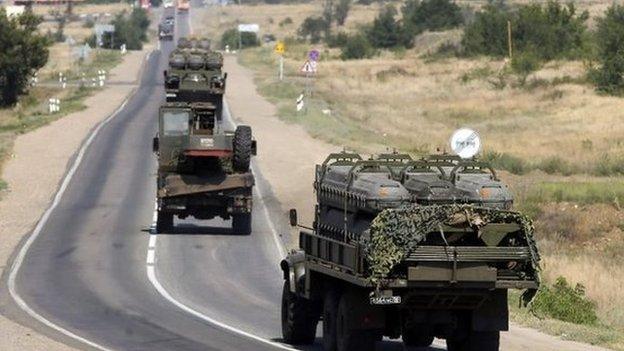
- Published25 March 2024

- Published18 March 2015
